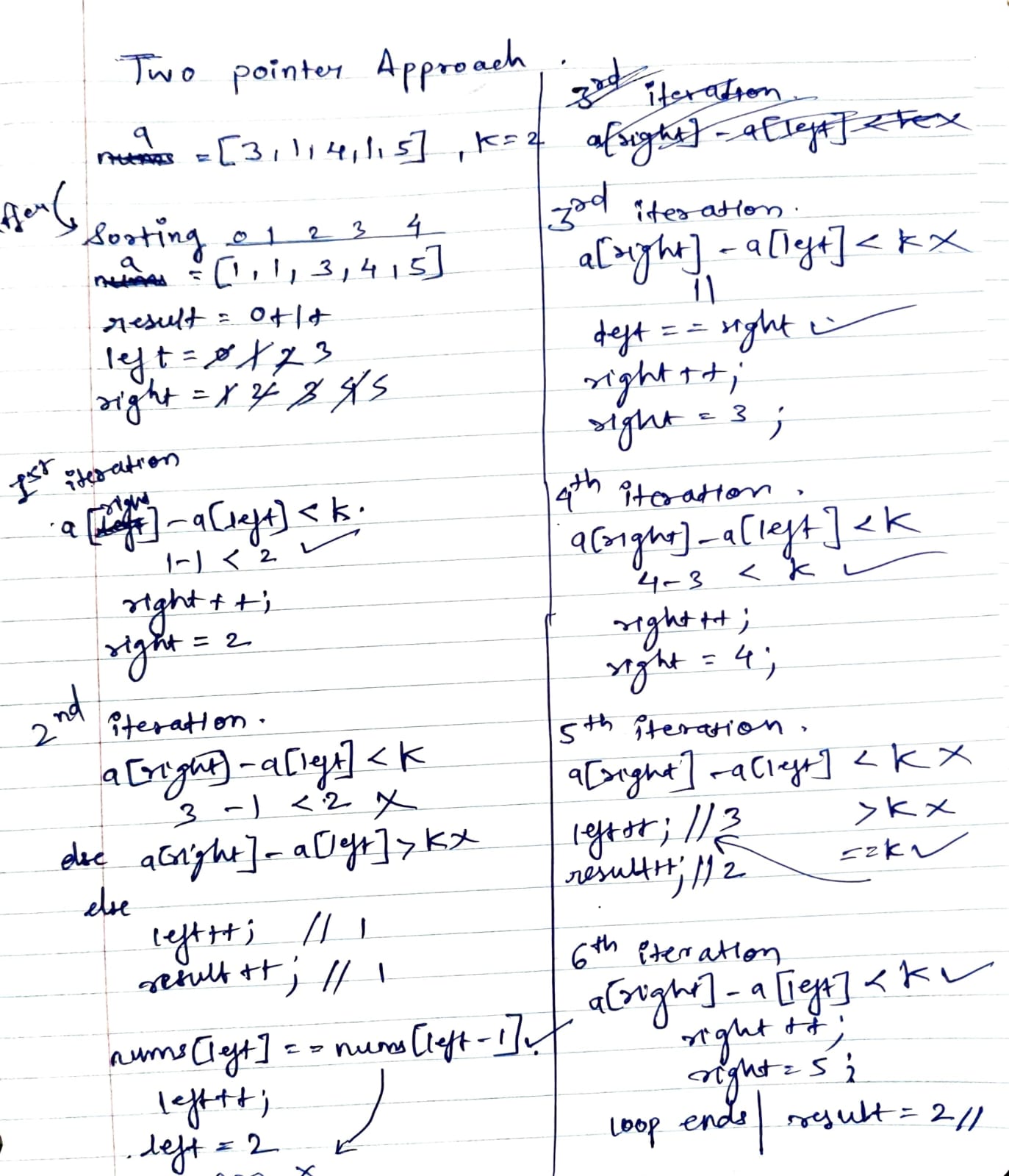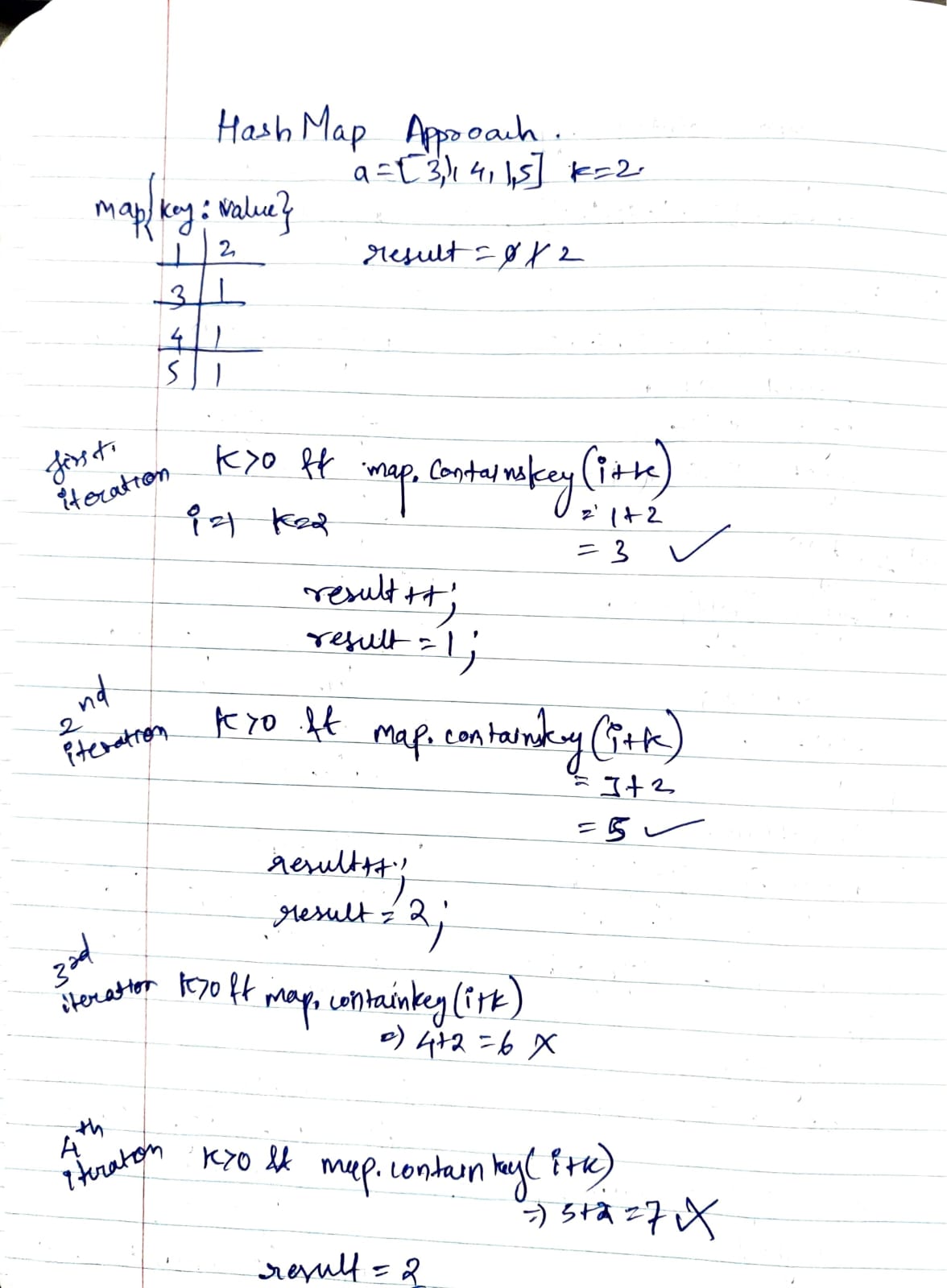K-diff Pairs in an Array
 Shreyash Chavhan
Shreyash Chavhan
Problem statement
Given an array of integer nums and an integer k, return the number of unique k-diff pairs in the array.
A k-diff pair is an integer pair (nums[i], nums[j]), where the following is true:
0 <= i, j < nums.lengthi != j|nums[i] - nums[j]| == k
Notice that |val| denotes the absolute value of Val.
Constraints
1 <= nums.length <= 10<sup>4</sup>-10<sup>7</sup> <= nums[i] <= 10<sup>7</sup>0 <= k <= 10<sup>7</sup>
Examples
nums = [3, 1, 4, 1, 5], k = 2
Output = 2
Sudo Code
Two Pointers Approach
Initialize the variables
Sort arrays
Loop till the right or left ends
If diff between the right and left elements is less than k or the left and right are the same, increment right.
If the diff is more than k, the increment left
Else increment left and result, Skip the duplicates using a loop.
HashMap Approach
Initialize the map.
Capture the frequency of each element in the map.
Iterate over the map and check whether k>0 && map contains map element + k or k==0 and map element having a frequency of more than 1. If yes increment result.
Dry Run


Solution
// Two pointers approach
public int findPairs(int[] nums, int k) {
// 1. Initialize the variables
int left = 0, right = 1;
int result = 0;
// 2. Sort arrays
Arrays.sort(nums);
// 3. Loop till right or left ends
while(left < nums.length && right < nums.length){
// 3.1 If diff between right and left element is less than k or left and right are same, increment right
if(left == right || nums[right] - nums[left] < k){
right++;
// 3.2 If diff is more than k, increment left
}else if(nums[right] - nums[left] > k){
left++;
}else{
// 3.3 Else increment left and result, Skip the duplicates using loop.
left++;
result++;
while(left < nums.length && nums[left] == nums[left-1]){
left++;
}
}
}
return result;
}
// Hashmap approach
public int findPairs(int[] nums, int k) {
// 1. Initialize the map
Map<Integer, Integer> map = new HashMap();
// 2. Capture the frequency of each element in map
for(int x : nums){
map.put(x, map.getOrDefault(x, 0) + 1);
}
int result = 0;
// 3. Iterate over map and check whether k>0 && map contains map element + k or k==0 and map element having frquency more than 1. If yes increment result
for(int i : map.keySet()){
if((k > 0 && map.containsKey(i+k)) || (k == 0 && map.get(i) > 1)){
result++;
}
}
return result;
}
Time complexity Analysis
Two pointers -
Time complexity - O(nlogn)
Space complexity - O(1)
HashMap -
Time complexity - O(N)
Space complexity - O(N)
Topics Covered
Two Pointers, Hashmap
Companies
Adobe, Amazon, Facebook,
Subscribe to my newsletter
Read articles from Shreyash Chavhan directly inside your inbox. Subscribe to the newsletter, and don't miss out.
Written by
